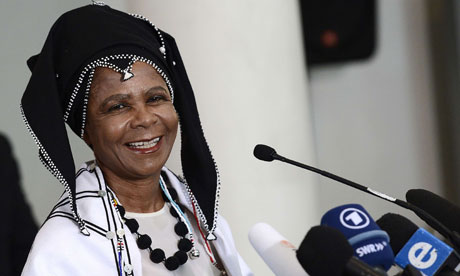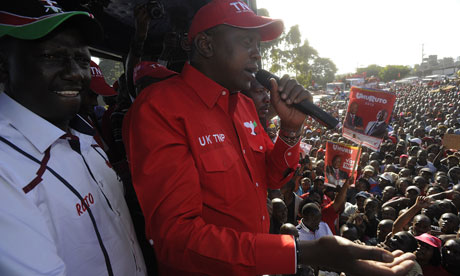By Hannah Stewart
Impunity Watch Reporter, Africa
YAOUNDE, Cameroon — On Tuesday, Nigerian Islamic militants abducted a French family of seven, including four children in northern Cameroon. Reports state that the family has been taken across the border into Nigeria.

Reports state that men on motorcycles, armed with Kalashnikovs, intercepted the family in their car near Waza National Park and forced them to drive to the nearby Nigerian border
Waza Park, a natural wildlife reserve in the Far North Region attracts mainly foreign tourists. However, the area suffers from abduction raids by groups in Cameroon, Chad and Nigeria; these bandits often kidnap locals for ransom.
Given France’s involvement in Mali to oust Islamic rebels in the north, the risk of attacks on French nationals and interests in Africa has risen in the last month.
French President Francois Hollande, speaking during a visit to Greece, warned French citizens in West Africa to avoid putting themselves in dangerous situations. Hollande noted that while France is engaged in a military campaign in Mali, terrorists “are not just in Mali.”
As of today, a total of 15 French citizens are currently being held in western Africa: the seven abducted in Cameroon, one other in Nigeria, and seven thought to be held in northern Mali.
Moreover, the abduction of the French family came a day after an Islamist group in Nigeria claimed responsibility for taking seven foreigners hostage at a construction site in the northern state of Bauchi.
The group that calls itself Ansaru issued a short statement about the kidnapping in northern Nigeria over the weekend, hinting at political motivations for kidnapping what Nigerian authorities say are one British citizen, one Greek, one Italian, three Lebanese and one Filipino, who reportedly work for Setraco Nigeria Ltd.
This series of kidnappings have added to fears of instability and danger toward Westerners in the region.
For more information, please see:
Bloomberg – French Kidnapped in Cameroon Were Taken Into Nigeria – 19 February 2013
CBS – Militants Kidnap French Family of 7 in Cameroon, Officials Say – 19 February 2013
Chicago Tribune – Militants Kidnap French Family in North Cameroon – 19 February 2013
Reuters – Militants Kidnap French Family in North Cameroon – 19 February 2013



